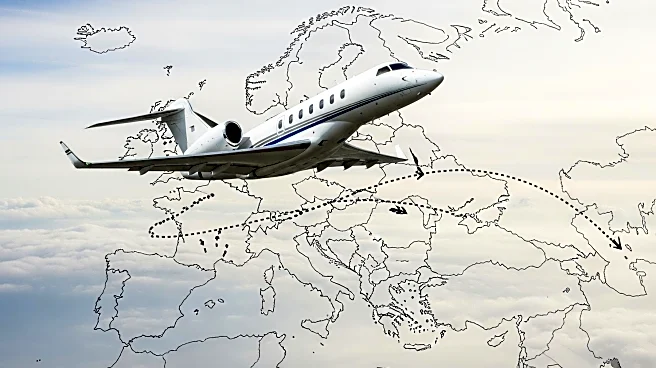What's Happening?
Israeli Prime Minister Benjamin Netanyahu took an unusual flight route to the United States, avoiding countries that could enforce an arrest warrant against him for alleged war crimes. The flight, which typically overflies several European countries, instead traveled over the Mediterranean Sea and the Strait of Gibraltar, bypassing French and Spanish airspace. This decision was made amid concerns that European countries, members of the International Criminal Court (ICC), could enforce the arrest warrant issued last November. The Prime Minister's Office has not publicly commented on the route choice.
Why It's Important?
Netanyahu's decision to take a circuitous flight route highlights the challenges faced by leaders accused of war crimes in navigating international travel. This situation underscores the impact of international legal proceedings on diplomatic and logistical decisions. The avoidance of certain airspaces reflects the complexities of international law and the potential consequences for leaders facing allegations. This development may influence Israel's diplomatic strategies and its relations with European countries.
What's Next?
The unusual flight route may prompt discussions within international forums about the enforcement of arrest warrants and the role of the ICC in holding leaders accountable. Netanyahu's travel decisions could lead to diplomatic tensions with European countries, potentially affecting Israel's foreign policy. The situation may also influence public opinion and political discourse in Israel and other nations regarding international justice and accountability.
Beyond the Headlines
Netanyahu's flight route raises ethical and legal questions about the balance between diplomatic relations and accountability for alleged war crimes. This development may influence public opinion and political discourse in Israel and other countries, potentially leading to broader discussions on international justice and human rights.









